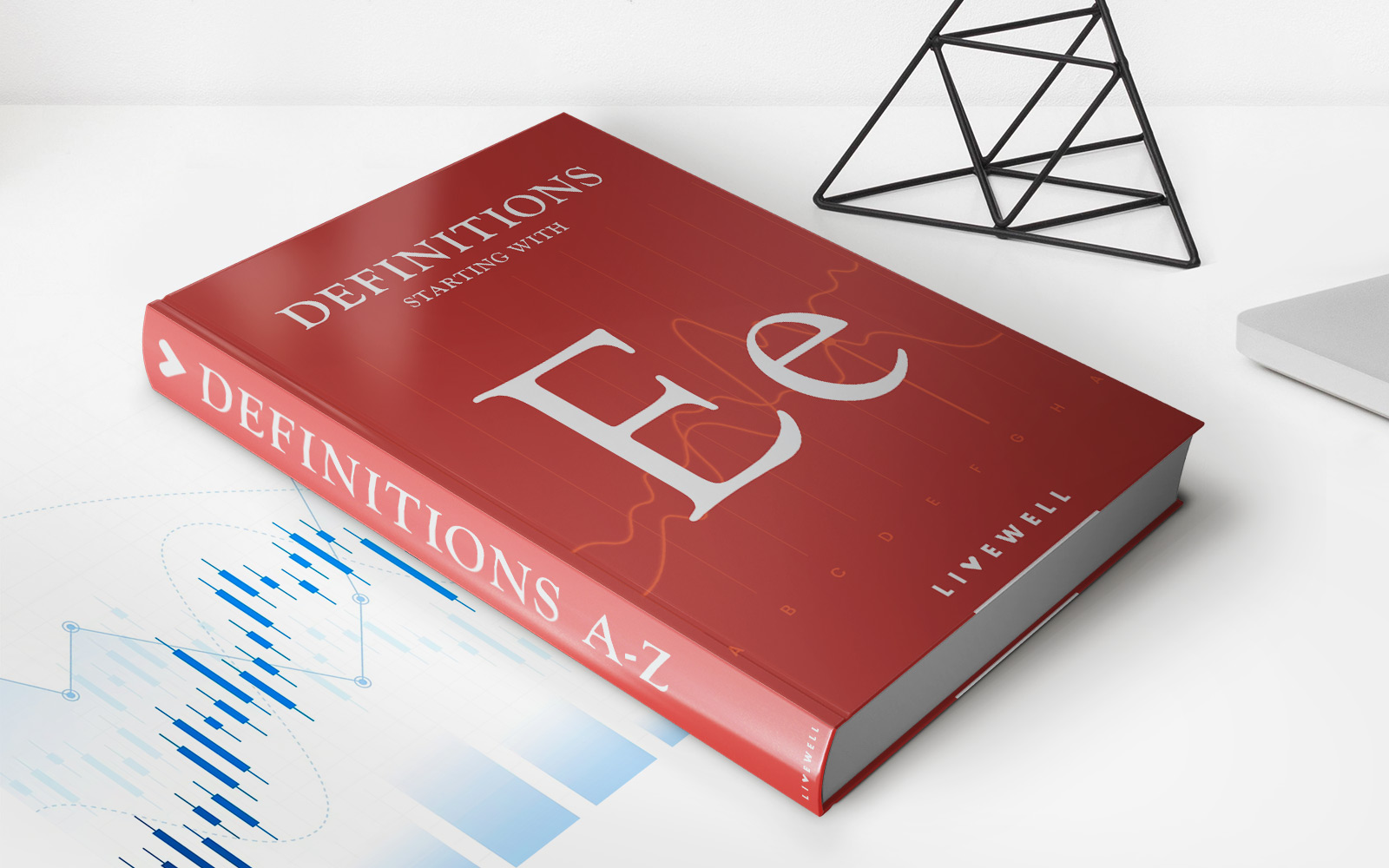Home>Finance>What If The Primary Life Insurance Beneficiary Has Dementia?


Finance
What If The Primary Life Insurance Beneficiary Has Dementia?
Modified: February 21, 2024
Discover what happens when the primary life insurance beneficiary is diagnosed with dementia. Learn about financial considerations and options for managing finances during this challenging time. Finance-related information you need to know.
(Many of the links in this article redirect to a specific reviewed product. Your purchase of these products through affiliate links helps to generate commission for LiveWell, at no extra cost. Learn more)
Table of Contents
Introduction
Having a primary life insurance beneficiary with dementia can present unique challenges when it comes to ensuring that the insurance policy is properly managed and the benefits are allocated appropriately. Dementia is a progressive condition that affects cognitive abilities, including memory, decision-making, and judgment. As the disease progresses, individuals with dementia may struggle to understand and make informed decisions about financial matters, including life insurance policies.
In this article, we will explore the considerations and options available to individuals who find themselves in the situation of having a primary life insurance beneficiary with dementia. It is important to understand the impact of dementia on decision-making and explore strategies to ensure that the insurance policy is used for the benefit of the policyholder and their loved ones.
It is crucial to approach this sensitive issue with empathy and compassion, recognizing the challenges faced by individuals with dementia and their families. Seeking legal advice and expert guidance can provide the necessary support to navigate the complexities involved in managing a life insurance policy with a beneficiary affected by dementia. By understanding the available options, individuals can make informed decisions that protect the interests and well-being of their loved ones.
Next, we will delve into a deeper understanding of dementia and its effects on decision-making, providing the necessary context to tackle the subsequent sections.
Understanding Dementia and Its Effects on Decision-Making
Dementia is a neurological disorder characterized by a decline in cognitive function that interferes with daily activities. The most common type of dementia is Alzheimer’s disease, but there are other types as well, such as vascular dementia and frontotemporal dementia. Regardless of the specific type, dementia affects an individual’s memory, thinking, and judgment abilities.
One of the significant challenges posed by dementia is its impact on decision-making. As the disease progresses, individuals with dementia may have difficulty understanding complex information, evaluating options, and assessing the potential consequences of their choices. This can have significant implications when it comes to managing financial matters, including life insurance policies.
When a person with dementia is named as the primary beneficiary of a life insurance policy, it may be necessary to involve others in the decision-making process to ensure that the policy is utilized appropriately. This is because the ability of the individual with dementia to comprehend the implications of their decisions and make informed choices can be compromised.
It is essential to recognize that the progression of dementia can vary from person to person. Some individuals may experience mild cognitive impairment, while others may reach more advanced stages of the disease. Understanding the specific cognitive abilities and limitations of the primary beneficiary is crucial in determining how to proceed with managing the life insurance policy.
Additionally, it is important to consider that individuals with dementia may become more vulnerable to financial exploitation or may make impulsive and uninformed decisions. This further underscores the need for additional safeguards and support to protect their interests.
Seeking guidance from healthcare professionals specializing in dementia care, as well as legal and financial advisors, can provide valuable insights and help navigate the complexities involved. These professionals can assess the decision-making capacity of the individual with dementia, provide guidance on legal options, and help develop a comprehensive plan for managing the life insurance policy.
Next, we will discuss the importance of appointing a power of attorney for financial and medical matters to ensure that the best interests of the individual with dementia are protected.
Appointing a Power of Attorney for Financial and Medical Matters
When dealing with a primary life insurance beneficiary with dementia, it is crucial to consider appointing a power of attorney for financial and medical matters. A power of attorney is a legal document that grants someone the authority to act on behalf of another person in specified matters.
By appointing a trusted individual as a power of attorney, you can ensure that someone with the necessary capacity and expertise is responsible for making important decisions regarding the life insurance policy. The power of attorney can handle financial and administrative tasks, such as managing premium payments, submitting claims, and negotiating with the insurance company.
When selecting a power of attorney, it is important to choose someone who is not only trustworthy but also has a good understanding of the complexities involved in managing a life insurance policy. This individual should be well-versed in financial matters, have the capacity to make informed decisions, and act in the best interests of the beneficiary. It is also advisable to select someone who has experience in dealing with dementia or can seek appropriate professional advice when needed.
It is crucial to establish clear expectations and boundaries with the power of attorney to ensure that they are aware of their responsibilities and obligations. Regular communication and updates regarding the status of the insurance policy and any changes in the beneficiary’s condition are essential for effective decision-making.
In addition to appointing a power of attorney for financial matters, it is also important to consider a separate power of attorney for medical decisions. This individual can make healthcare decisions on behalf of the beneficiary, ensuring that their medical needs are addressed according to their preferences and best interests.
Consulting with a legal professional who specializes in elder law or estate planning is highly recommended when appointing a power of attorney. They can provide valuable advice, draft the necessary legal documents, and ensure compliance with local laws and regulations.
Next, we will discuss the importance of reviewing and updating life insurance policies in light of a primary beneficiary’s dementia diagnosis.
Reviewing and Updating Life Insurance Policies
When dealing with a primary life insurance beneficiary with dementia, it is essential to review and update the existing life insurance policies to ensure they align with the beneficiary’s changing needs and circumstances. This process involves several crucial steps to ensure that the policy continues to provide the intended benefits and protection.
First and foremost, it is important to review the terms and conditions of the existing life insurance policy. This includes assessing the coverage amount, premium payments, and any specific provisions or restrictions. Understanding these details is crucial in determining if the policy adequately meets the beneficiary’s financial needs and whether any adjustments are necessary.
If the existing policy does not meet the beneficiary’s current or anticipated needs, it may be necessary to explore other insurance options. This could involve securing additional coverage or modifying the existing policy to provide better coverage or additional benefits.
It is also important to consider the financial implications of the life insurance policy. This includes assessing the affordability of premium payments and the impact on the overall financial situation of the policyholder and their loved ones. It may be necessary to reallocate resources or explore alternative funding options to ensure that the policy remains active and the premiums are paid in a timely manner.
Another crucial aspect of reviewing and updating life insurance policies is ensuring that the beneficiary designation is up to date. Due to the progression of dementia, it is vital to confirm that the designated beneficiary is still appropriate and aligned with the policyholder’s wishes. This may require updating the beneficiary designation to reflect any changes in circumstances or relationships.
Consulting with a financial advisor or insurance professional can provide valuable insights and guidance during the process of reviewing and updating life insurance policies. These professionals can assess the policy’s suitability, provide advice on potential modifications or alternatives, and ensure that the beneficiary designation is in compliance with the policyholder’s wishes.
In the next section, we will discuss the importance of naming a contingent beneficiary in the event that the primary beneficiary with dementia is unable to receive the policy benefits.
Naming a Contingent Beneficiary
When the primary life insurance beneficiary has dementia, it is crucial to consider naming a contingent beneficiary in the life insurance policy. A contingent beneficiary is someone who will receive the policy benefits if the primary beneficiary is unable to do so.
Naming a contingent beneficiary provides a safeguard in case the primary beneficiary with dementia becomes incapable of receiving or managing the policy benefits. In such cases, the insurance company will distribute the benefits to the contingent beneficiary as per the policy terms.
When selecting a contingent beneficiary, it is important to choose someone who is trustworthy and capable of managing the policy benefits responsibly. This individual should have a clear understanding of the policy, any conditions or requirements, and should be willing and able to fulfill the responsibilities associated with receiving the benefits.
It is also advisable to discuss the decision with the contingent beneficiary in advance to ensure their willingness to take on the responsibilities and to provide them with a clear understanding of their role in the event that they become the recipient of the policy benefits.
In some cases, individuals may choose to name a trust as the contingent beneficiary. This can provide additional control and flexibility in managing the policy benefits for the benefit of the primary beneficiary with dementia. By naming a trust, the policy proceeds can be disbursed according to predetermined guidelines and instructions outlined in the trust document.
Consulting with an estate planning attorney or financial advisor is recommended when naming a contingent beneficiary. They can provide guidance on the legal and financial implications, help draft the necessary documents, and ensure that the contingent beneficiary designation aligns with the policyholder’s intentions and objectives.
Next, we will explore the importance of seeking legal advice and expert guidance when navigating the complexities of managing a life insurance policy with a beneficiary affected by dementia.
Seeking Legal Advice and Expert Guidance
Managing a life insurance policy with a primary beneficiary affected by dementia can be a complex and challenging task. To ensure that the best interests of the policyholder and the beneficiary are protected, it is crucial to seek legal advice and expert guidance.
When facing the intricate legal and financial matters surrounding dementia and life insurance, consulting with an attorney who specializes in elder law or estate planning is highly recommended. These professionals have the expertise and experience to navigate the complexities of managing a life insurance policy in the context of dementia.
An attorney can assess the legal capacity of the primary beneficiary and provide guidance on the necessary legal steps to ensure that the policy is managed appropriately. They can assist with the appointment of a power of attorney, review and update the policy, advise on the naming of contingent beneficiaries or trusts, and ensure compliance with legal requirements.
In addition to legal advice, it can be beneficial to seek guidance from financial advisors with expertise in insurance and estate planning. These professionals can provide insights on how to analyze the policy’s financial implications, explore alternatives or modifications, and ensure that the policy aligns with the broader financial plan of the policyholder and their family.
Healthcare professionals specializing in geriatric care and dementia can provide valuable insights into the specific challenges faced by individuals with dementia and their families. They can provide guidance on decision-making, support services, and resources available to assist with managing the life insurance policy.
Remember that each situation is unique, and the advice and support needed may vary. It is important to work closely with a team of professionals who can collaborate and provide a comprehensive approach to managing a life insurance policy with a beneficiary affected by dementia.
Lastly, keep in mind that seeking legal and expert advice can provide peace of mind and help ensure that the best interests of the individuals involved are protected throughout the process.
Let’s conclude this article with a summary of the key points discussed.
Conclusion
Dealing with a primary life insurance beneficiary affected by dementia can present unique challenges. It requires careful consideration and proactive planning to ensure that the life insurance policy is properly managed and the best interests of the policyholder and beneficiary are protected.
Understanding the effects of dementia on decision-making is crucial in navigating this situation. Recognizing the limitations of the primary beneficiary’s cognitive abilities and involving others, such as a power of attorney, can help ensure that the policy is utilized appropriately and in line with the policyholder’s wishes.
Reviewing and updating life insurance policies is essential to ensure they remain relevant and meet the beneficiary’s evolving needs. It may involve adjusting coverage, assessing affordability, and updating beneficiary designations to reflect changing circumstances.
Naming a contingent beneficiary provides an added layer of protection, ensuring that policy benefits are allocated in the event that the primary beneficiary is unable to receive them. Careful consideration should be given to selecting a trustworthy and capable contingent beneficiary or a trust.
Throughout this process, seeking legal advice and expert guidance is crucial. Attorneys specializing in elder law or estate planning can provide valuable insights and assistance in managing the legal complexities of a life insurance policy with a beneficiary affected by dementia. Financial advisors and healthcare professionals can also offer guidance and support in the financial and healthcare aspects of the situation.
Remember, each situation is unique, and the specific needs and challenges of managing a life insurance policy with a beneficiary affected by dementia may vary. It is essential to approach this journey with empathy, compassion, and a proactive mindset, seeking the necessary expertise to navigate the complexities and make informed decisions that protect the interests and well-being of all involved.
By taking the necessary steps and being proactive in managing the life insurance policy, individuals can ensure that their loved ones are cared for and that the policy benefits serve their intended purpose, even in the face of dementia.














